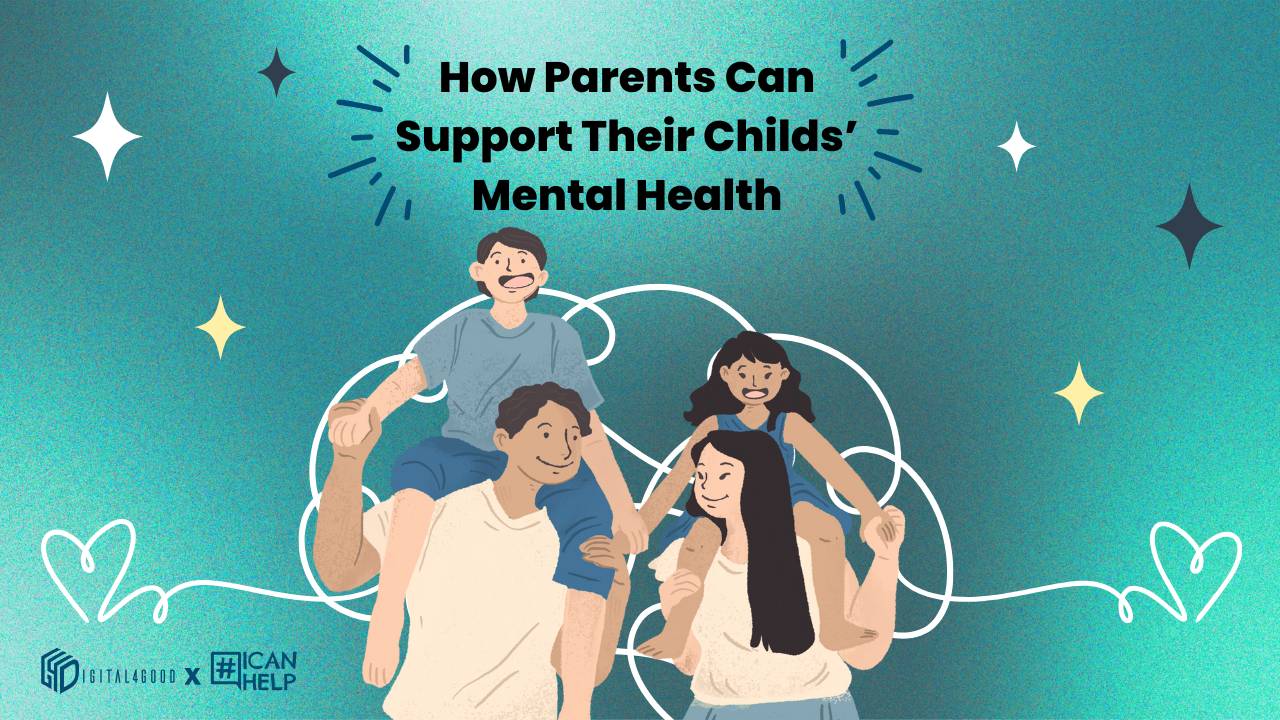How Parents Can Support Their Child’s Mental Health
May 02, 2025
By: Caitlin Franklin | Seasonal Public Relations Intern | Digital4Good
Globally, 1 in 7 adolescents experience a mental health disorder, yet these conditions often remain overlooked and untreated. Mental health is an essential part of overall well-being. When nothing is done to address mental health conditions in children, these issues are more likely to extend into adulthood, impairing their ability to lead a healthy, fulfilling life.
Parents and guardians play a significant role in children’s emotional development. Fostering a safe environment, encouraging healthy outlets, and respecting individual growth are the building blocks that strengthen children’s emotional foundation and equip them to handle life’s challenges. This article explores each component in detail to guide you in supporting your child’s mental health.
Create a Safe Space
Talking with your child about their mental health is always the first step. Unfortunately, due to the stigma surrounding mental health, children and teens may feel ashamed or reluctant to seek help.
To create a safe environment for your child, it is imperative that you normalize conversations about mental health. Teach your child that seeking help or showing vulnerability is a sign of strength, not weakness. Additionally, sharing your own personal experiences can encourage openness and assure your child that they are not alone in their struggles.
While encouraging honesty is important, your child should not feel pressured to share anything they aren’t comfortable discussing. Tell them that when they are ready to talk about a sensitive subject, you will be there for them.
When your child chooses to open up to you, they will need to know that they are safe and supported. This is where active listening comes in. Make sure you are giving them your full, undivided attention. Avoid responses that downplay their concerns or minimize the severity of the situation, as these may lead to feelings of shame, insecurity, or guilt in your child. By validating your child’s feelings, you establish trust and the emotional safety you both need.
Encourage Healthy Outlets
Children need healthy ways to cope with stress and negative emotions. Encouraging involvement in afterschool activities, hobbies, or calming techniques can offer productive means of managing their emotions and relieving stress.
Examples of healthy activities include:
- Sports and other forms of physical activity, such as regular walks or runs.
- Creative outlets like music, art, or journaling.
- Social interactions with friends and family.
- Mindfulness practices, such as meditation or deep breathing.
Showing enthusiasm and support for your child’s hobbies and celebrating their accomplishments (whether big or small) will help motivate them to continue pursuing healthy outlets and build confidence.
Respect Individual Growth
Every child develops at their own pace, and setting unrealistic expectations can create undue pressure. To encourage healthy development, parents must respect this unique process. Avoid comparing your child to others through statements such as “Why can’t you be more like…?” or “If…can do it, so can you.” Instead, focus on meeting your child where they are. Recognize the progress they are making, and celebrate their personal milestones.
It is also important to encourage independence in your child while providing a safety net. Parents should check in with their child about their mental health and look out for changes in behavior: withdrawal, mood swings, or loss of interest in activities that previously brought them joy. If concerns persist, seeking professional help from a therapist, counselor, or school psychologist can provide the support and intervention your child needs.
A Lifelong Commitment
Supporting your child’s mental health is an ongoing process that requires patience, understanding, and active involvement. Being there for them through each stage of their journey will help them develop the resilience and confidence to overcome the challenges that come their way.
At Digital4Good, we’re here to provide you with resources, expert insights, and a community committed to fostering positive conversations about mental health. Check out our tools to help you navigate these important discussions and create a safe, empowering environment for your child.
Stay connected with news and updates!
Join our mailing list to receive the latest news and updates from our team.
Don't worry, your information will not be shared.
We hate SPAM. We will never sell your information, for any reason.


